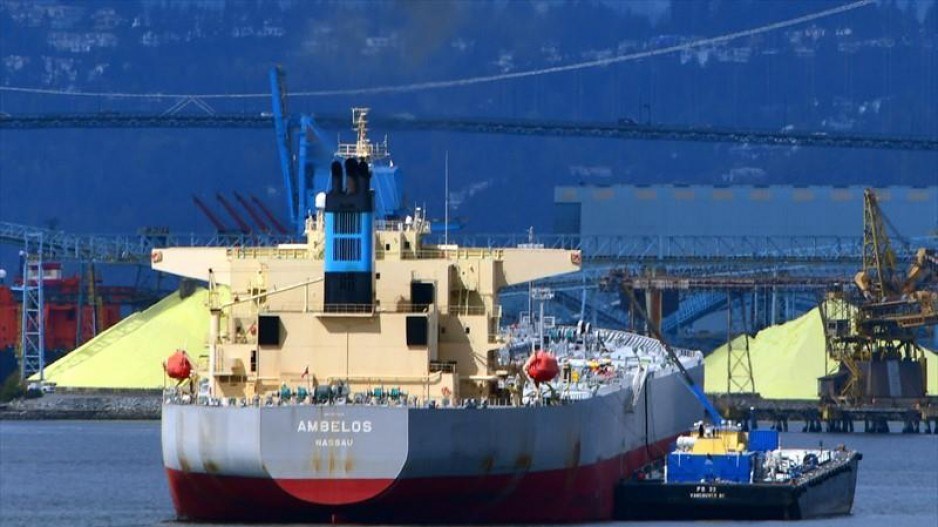Emissions caps, new and expanded pipelines to the U.S., higher transportation costs and lower prices in Asia all lead to the conclusion that a twinned Trans Mountain pipeline is not needed.
That’s the conclusion of a report authored by David Hughes for the Canadian Centre for Policy Alternatives (CCPA).
The latest report, published Thursday, builds on one Hughes authored in 2017 for the CCPA that made some similar arguments.
Since his last report in 2017, however, Hughes notes that a number of new pipelines, expansions or pipeline reversals to the U.S. have been announced or sanctioned that render the Trans Mountain pipeline expansion unnecessary. They include the Enbridge mainline, and the Aurora-Rangeland, Keystone XL and Express pipelines.
Hughes also notes an emissions cap of 100 tonnes of CO2 for Alberta’s oil sector that may constrain future expansions of bitumen production.
The Canadian Energy Regulator (CER), Alberta Energy Regulator (AER), Canadian Association of Petroleum Producers (CAPP) and International Energy Agency (IEA) have all made estimates on Alberta’s potential to increase oil sands production in the future. All could be met with existing, new or expanded pipelines or rail access, Hughes argues.
“The increase in oil production forecast by CER (with an oil sands emissions cap), AER, CAPP and IEA can easily be accommodated for the next decade with existing pipelines, including announced optimizations and the Line 3 expansion, without rail or the TMX and Keystone XL pipelines,” Hughes’ latest report concludes.
Whether the Keystone XL pipeline is ever completed may depend on who wins next week’s presidential election in the U.S. Joe Biden has pledged to reverse Donald Trump’s approval of the on-again-off-again project.
But no matter how many pipelines to the U.S. are built or expanded, it wouldn't address the fundamental rationale for expanding Trans Mountain in the first place, say Alberta oil producers: It’s the only one that would give Alberta producers easy access to global markets. All other pipelines and rail lines lead to one market: The U.S.
While the IEA predicts the demand for oil could peak over the next decade in Europe and other Western countries, it predicts the demand for oil will continue to grow in Asia, notably China and India.
Previously made arguments against TMX pointed to the fact that most of the limited oil tanker shipments out of Vancouver in the past went almost exclusively to the U.S. – California being a prime destination.
The argument was that, if there was a demand for Alberta heavy oil in Asia, some of the exports via the existing Trans Mountain pipeline would have already gone to Asia.
But over the last couple of years, that’s exactly what has happened. As BIV News reported last year, in 2018 7.5 million barrels of Alberta crude shipped to Asia via Westridge Marine Terminal, according to Statistics Canada data, with a total value of $539 million. The trend continued in 2019.
It’s not just Chinese refiners who were buying Alberta heavy oil. Tanker shipments of Alberta heavy oil through Vancouver have gone to Thailand, South Korea, and Hong Kong as well in the last couple of years.
The increased shipments to Asia are likely due to lower prices.
David Huntley, who tracks oil tanker shipments out of Westridge Marine Terminal, counted eight tankers leaving Vancouver for China between April and June this year, although Huntley argues that the existing Trans Mountain has sufficient capacity for exports and does not need to be expanded
Anas Alhajji, a global energy expert based in the U.S., points out that a mismatch between what is being produced – a whole lot of light shale oil in the U.S. – and what many refiners need – heavy crude – adds up to a looming increased demand for heavy crude, especially in Asia, with Canada being one of the few countries capable of meeting that demand, if it can get it to tidewater.
“I don’t think anyone who is familiar with those issues questions the profitability or the business of this pipeline,” he told BIV News last year.
Hughes notes in his report the estimated cost of twinning Trans Mountain has increased from $7.4 billion when the Canadian government bought it from Kinder Morgan (NYSE:KMI) in 2018 to $12.6 billion in February 2020, “which will significantly increase shipping costs for Canadian producers selling oil to Asia compared to US exports.”
Essentially, Hughes’ report suggests that Alberta oil producers would be better off sticking with the U.S., where they will get better prices for their product than they would trying to sell into the Asian market, partly due to higher shipping costs.
But despite the higher capital cost of the Trans Mountain expansion – which Alberta oil producers will ultimately pay for through tolls – and despite predictions that access to Asian markets will not provide the price lift they hope for, none of the 13 producers who signed long-term contracts with Trans Mountain have backed out and remain committed to their long-term contracts.




